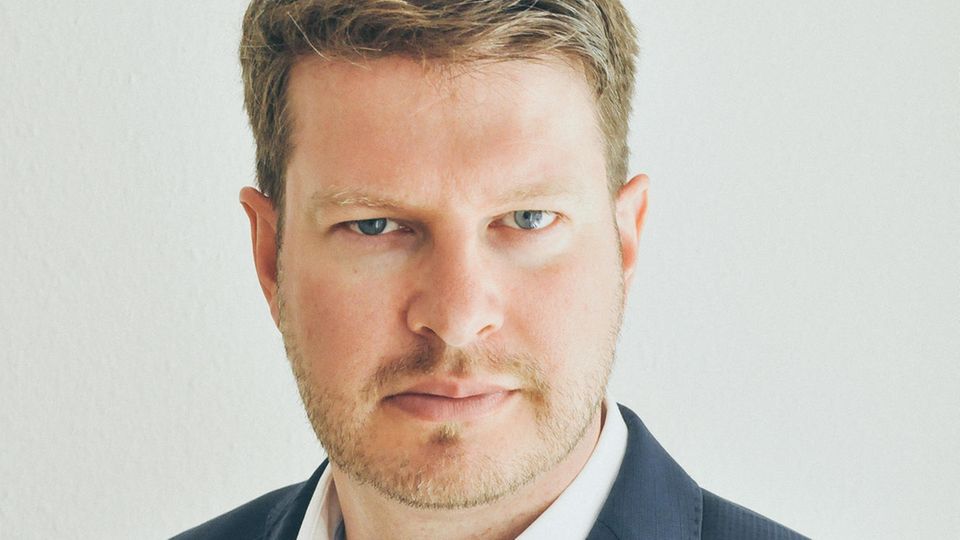interview
Rudiger Maas
Happy through frustration? Why our children need more courage to face boredom – and we do too
Many parents want to protect their children from frustration and boredom – but these feelings offer real opportunities.
© hoozone / Getty Images
When boredom sets in, we distract ourselves with our smartphones. Many parents do the same with their children, true to the motto: don’t be idle. We’re not doing them any favors, says psychologist Rüdiger Maas in an interview with him star – and reveals how to do it better.
Her new book is called “Happily through Frustration”. Isn’t that actually a contradiction?
Rudiger Maas: It definitely sounds like a contradiction to many people. And that’s exactly the problem. We all long for a world without frustration and at the same time want to experience as many positive things as possible. But that doesn’t make any sense. If we don’t appreciate the negative, we eventually stop appreciating the positive.
In your book you focused primarily on frustration in children. Why?
Frustration is something we all experience from time to time, yet hardly allow ourselves or others to feel. With my book, I want to give parents the security to let things happen without being constantly afraid of not protecting their own child enough. And without the pressure of constantly having to be the entertainer of his offspring.
With the smartphone against the frustration
Where does this expectation of many parents come from anyway?
We always get older when we have children. Anyone who becomes a parent for the first time at the age of 40 is usually also much more risk-averse in their actions, and consequently also in their upbringing, and thinks a lot through. Between your own experienced childhood and that of your child there are now 40 years in which the world has changed radically. The horizon of experience that the parents had as children can no longer be transferred to today’s children and their environment. Our growing affluent society also means that we are becoming more and more anxious overall. This means that we get used to a certain degree of security, become tired of action and therefore trust our children less and less. This applies to boredom, for example. Since we distract ourselves with the smartphone as soon as it announces itself, we also feel the need for our offspring.
World Children’s Day
Ten basic needs: What children need to be happy
That doesn’t sound particularly helpful. What matters instead?
Children need the space to express themselves. If parents entertain their children in every free minute, then they deny them the opportunity to try themselves. This includes dealing with frustration. It’s much better when a child does something about their frustration themselves than when the solution always comes from outside. This also strengthens the self-efficacy of the young person enormously. I would like to tell parents that they should let their children explore the world. Even if the child gets bored at home, it doesn’t have to be entertained immediately. It’s worth waiting and seeing what the offspring can think of to overcome boredom.

Rüdiger Maas is a psychologist and generation researcher. As co-founder of Institute for Generation Research he is primarily concerned with the psychological characteristics and peculiarities of Generations Z and Alpha. He uses his findings in his new book “Happiness through frustration. Why boredom and resistance make our children strong” (GU Verlag, 17.99 euros) to show parents new perspectives.
© Private
Why boredom sometimes makes sense
So what can boredom do to our children—and ourselves?
Frustration and boredom are initially unpleasant feelings that we would like to stop as soon as possible. That’s human. But it is important that we learn early on to get along with such feelings. I’m sure some of mankind’s greatest inventions are born out of boredom. In such a situation, we start to move out of our comfort zone.
And what if we don’t learn how to deal with frustration when we are young?
Children who don’t have the opportunity to deal with their frustration later have a much harder time dealing with things that just don’t go the way they had imagined. Parents are not always there to absorb the sometimes very frustrating world.
How can parents give their child the necessary space to get to know frustration and boredom?
You can start by stopping driving your child to school every day and working on your self-image as a parent. If you think you have to be a constant entertainer for your offspring, you are not only restricting your child, but also yourself. Instead, it is much more worthwhile to really respond to the child and just let it be a child.


